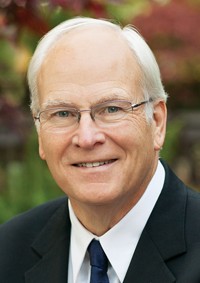Advertisement
Grab your lab coat. Let's get started
Welcome!
Welcome!
Create an account below to get 6 C&EN articles per month, receive newsletters and more - all free.
It seems this is your first time logging in online. Please enter the following information to continue.
As an ACS member you automatically get access to this site. All we need is few more details to create your reading experience.
Not you? Sign in with a different account.
Not you? Sign in with a different account.
ERROR 1
ERROR 1
ERROR 2
ERROR 2
ERROR 2
ERROR 2
ERROR 2
Password and Confirm password must match.
If you have an ACS member number, please enter it here so we can link this account to your membership. (optional)
ERROR 2
ACS values your privacy. By submitting your information, you are gaining access to C&EN and subscribing to our weekly newsletter. We use the information you provide to make your reading experience better, and we will never sell your data to third party members.
Policy
ACS Advocates To Promote U.S. Innovation And Competitiveness
by Diane Grob Schmidt, ACS President
March 23, 2015
| A version of this story appeared in
Volume 93, Issue 12
I am delighted to be taking the helm as president of the American Chemical Society this year. I see great opportunities to advance top ACS policy priorities designed to promote U.S. innovation and job creation, thus ensuring a stronger, more dynamic, competitive U.S. economy.
Partisan gridlock is likely to continue on issues such as immigration, health care, foreign policy, climate change, and taxes. However, I remain hopeful that Congress and President Barack Obama can work together to advance commonsense, bipartisan legislation that is conducive to a healthy innovation environment that will support economic growth.
My presidential theme is “Inspiring and Innovating for Tomorrow.” Supporting that theme are three broad areas of engagement: advocacy, collaboration, and education. For this article, I am going to focus on advocacy, the actions I am taking, and the role that ACS members can play.
Without question, the chemistry enterprise is vital to driving U.S. innovation and job creation by means of its research and development activities—essentially discovering new products and processes that improve people’s lives through the transforming power of chemistry.
I am working closely with the ACS Office of Public Affairs to search for ways to develop, introduce, and support congressional and executive branch actions based on effective, commonsense principles that support and advance U.S. innovation.
In Washington you don’t necessarily get what you deserve, but you may get what you advocate for. Here are five pieces of legislation we are working hard on right now that you should know about.
◾ The Sustainable Chemistry Research & Development Act would create an interagency task force to coordinate green and sustainable chemistry research, fund grants, and enable public-private partnerships. Economically competitive and environmentally benign, sustainable chemistry is the future of the chemistry enterprise.
◾ The Energy Savings & Industrial Competitiveness Act promotes stronger energy policies that would stimulate innovation and create a healthier environment. It would rewrite energy-saving codes and standards while creating education programs to train workers in the skills necessary for implementing greater energy efficiency. The bill would provide incentives for using efficient technology and would set practical goals for the federal government—the single largest energy consumer.
◾ The research and development tax credit provides a powerful innovation incentive to increase domestic investment by U.S. businesses. Originally introduced as part of the Economic Recovery Tax Act of 1981, the tax credit has since expired and been reinstated multiple times, most recently at the end of 2014. It needs to be updated and made permanent to keep the U.S. globally competitive.
◾ The Critical Minerals Policy Act would ensure that the U.S. has the supplies of critical materials needed to produce 21st-century technologies such as high-quality batteries, wind turbines, fluorescent lights, smartphones, and powerful magnets. The measure would prioritize discovery and extraction efforts in the U.S., establish recycling programs, and identify alternative materials to reduce U.S. dependency on foreign supplies.
◾ The Elementary & Secondary Education Act, also known as the No Child Left Behind Act, expired in 2007, creating uncertainty for the future of the federal role in education. The reauthorized bill should include science alongside math and reading as priority subjects and encourage rigorous and broadly applicable college and career-ready standards across the country.
I encourage each of you to help advance the ACS agenda on Capitol Hill by advocating on behalf of our priorities. Contact your members of Congress and encourage them to support our agenda. Although I remain hopeful that Congress and the White House will cooperate on at least some of our priorities, the task will not be easy, nor our success guaranteed, and your help is needed. If you want to get involved, there are a few ways you can easily do so.
◾ Go to www.acs.org/policy to familiarize yourself with ACS’s policy positions.
◾ Contact ACS’s Office of Public Affairs at (202) 872-4386 to speak to a staff member.
◾ Go to www.acs.org/act4chemistry to sign up for our Legislative Action Network.
Working together, we can promote an agenda appealing to all elected officials, no matter their political stripe. By advocating issues that have bipartisan appeal, we also provide our elected officials a welcome respite from constant political battles and an opportunity to demonstrate to the general public that they can in fact work together.
Our individual voices may seem small, but together we can create a chorus championing chemistry.
Views expressed on this page are those of the author and not necessarily those of ACS.






Join the conversation
Contact the reporter
Submit a Letter to the Editor for publication
Engage with us on Twitter